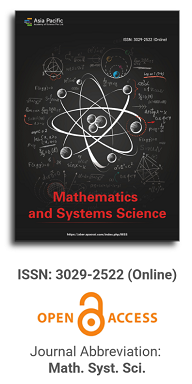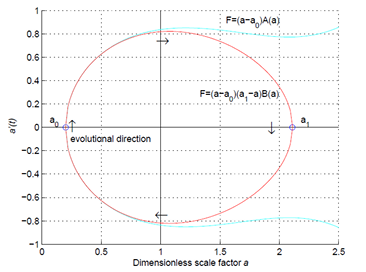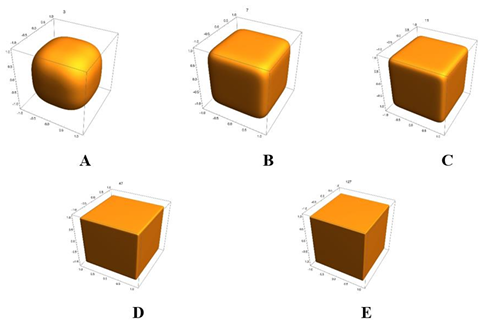


An iterative method for robust solutions to nonlinear Volterra integral equations: Stability, convergence, and practical applications
Vol 2, Issue 1, 2024
Download PDF
Abstract
The paper introduces an iterative method for solving nonlinear Volterra integral equations and analyzes its convergence, stability, and application through examples. It expresses the general nonlinear Volterra integral equation as a series and decomposes the nonlinear operator to derive a recursive formula for the proposed iterative method. The method ensures absolute and uniform convergence, with stability analysis conducted to ensure bounded errors in the presence of perturbations. Convergence analysis utilizes the Lipschitz condition, demonstrating the uniform convergence of the solution series. Illustrative examples, including power nonlinearity and trigonometric functions, validate the stability and convergence of the method. Through graphical representations, convergence analyses for specific integral equations demonstrate the method’s effectiveness and applicability in solving diverse nonlinear integral equations. Overall, the paper contributes a robust iterative method with insights into its stability and convergence properties, supported by practical examples.
Keywords
References
- Guo D, Lakshmikantham V, Liu X. Nonlinear integral equations in abstract spaces. Springer Science & Business Media; 1996.
- Mahdy AMS, Nagdy AS, Hashem KM, et al. A Computational Technique for Solving Three-Dimensional Mixed Volterra–Fredholm Integral Equations. Fractal and Fractional. 2023; 7(2): 196. doi: 10.3390/fractalfract7020196
- Polyanin P, Manzhirov AV. Handbook of Integral Equations. Chapman and Hall/CRC; 2008. doi: 10.1201/9781420010558
- Mohammed JK, Khudair AR. Solving Volterra integral equations via fourth-degree hat functions. Partial Differential Equations in Applied Mathematics. 2023; 7: 100494. doi: 10.1016/j.padiff.2023.100494
- Laib H, Boulmerka A, Bellour A, et al. Numerical solution of two-dimensional linear and nonlinear Volterra integral equations using Taylor collocation method. Journal of Computational and Applied Mathematics. 2023; 417: 114537. doi: 10.1016/j.cam.2022.114537
- Wazwaz AM. Linear and Nonlinear Integral Equations. Springer Berlin Heidelberg; 2011. doi: 10.1007/978-3-642-21449-3
- Abdeljawad T, Agarwal RP, Karapınar E, et al. Solutions of the Nonlinear Integral Equation and Fractional Differential Equation Using the Technique of a Fixed Point with a Numerical Experiment in Extended b-Metric Space. Symmetry. 2019; 11(5): 686. doi: 10.3390/sym11050686
- Lee JW, O’Regan D. Existence Principles for Nonlinear Integral Equations on Semi-Infinite Intervals and Half-Open Intervals. Advances in Nonlinear Dynamics. 2023; 355–364. doi: 10.1201/9781315136875-38
- Micula S. A Numerical Method for Weakly Singular Nonlinear Volterra Integral Equations of the Second Kind. Symmetry. 2020; 12(11): 1862. doi: 10.3390/sym12111862
- Bhujel M, Hazarika B. Existence of solutions of nonlinear fredholm-type integral equations in hölder space. Journal of Integral Equations and Applications. 2023; 35(1). doi: 10.1216/jie.2023.35.1
- Song H, Yang Z, Brunner H. Analysis of collocation methods for nonlinear Volterra integral equations of the third kind. Calcolo. 2019; 56(1). doi: 10.1007/s10092-019-0304-9
- Assari P, Dehghan M. The approximate solution of nonlinear Volterra integral equations of the second kind using radial basis functions. Applied Numerical Mathematics. 2018; 131: 140–157. doi: 10.1016/j.apnum.2018.05.001
- Daliri Birjandi MH, Saberi-Nadjafi J, Ghorbani A. An Efficient Numerical Method for a Class of Nonlinear Volterra Integro-Differential Equations. Journal of Applied Mathematics. 2018; 2018: 1–7. doi: 10.1155/2018/7461058
- Okeke GA, Ofem AE, Abdeljawad T, et al. A solution of a nonlinear Volterra integral equation with delay via a faster iteration method. AIMS Mathematics. 2023; 8(1): 102–124. doi: 10.3934/math.2023005
- Ofem AE, Udofia UE, Igbokwe DI. A robust iterative approach for solving nonlinear volterra delay integro–differential equations. Ural Mathematical Journal. 2021; 7(2): 59. doi: 10.15826/umj.2021.2.005
- Baker CTH, Tang A. Stability analysis of continuous implicit Runge-Kutta methods for Volterra integro-differential systems with unbounded delays. Applied Numerical Mathematics. 1997; 24(2–3): 153–173. doi: 10.1016/S0168-9274(97)00018-4
- Blank L. Stability results for collocation methods for Volterra integral equations. Applied mathematics and computation. 1996; 79(2–3): 267–288. doi: 10.1016/0096-3003(95)00270-7
- Wang K, Wang Q, Guan K. Iterative method and convergence analysis for a kind of mixed nonlinear Volterra–Fredholm integral equation. Applied Mathematics and Computation. 2013; 225: 631-637. doi: 10.1016/j.amc.2013.09.069
- Ramos JI. Iterative and non-iterative methods for non-linear Volterra integro-differential equations. Applied Mathematics and Computation. 2009; 214(1): 287-296. doi: 10.1016/j.amc.2009.03.067
- Saffarzadeh M, Heydari M, Barid Loghmani G. Convergence analysis of an iterative algorithm to solve system of nonlinear stochastic Itô‐Volterra integral equations. Mathematical Methods in the Applied Sciences. 2020; 43(8): 5212–5233. doi: 10.1002/mma.6261
Supporting Agencies
Copyright (c) 2024 Isaac Azure
License URL: https://creativecommons.org/licenses/by/4.0/
Editor-in-Chief

Prof. Youssri Hassan Youssri
Cairo University, Egypt
Asia Pacific Academy of Science Pte. Ltd. (APACSCI) specializes in international journal publishing. APACSCI adopts the open access publishing model and provides an important communication bridge for academic groups whose interest fields include engineering, technology, medicine, computer, mathematics, agriculture and forestry, and environment.


.jpg)

.jpg)
